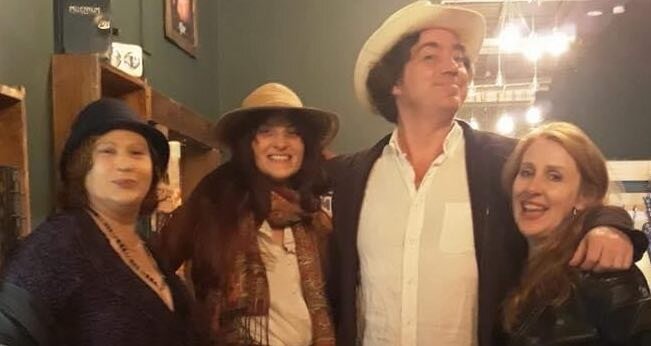Play games to improve your growth mindset.
In Monopoly, you completely win or utterly lose. No growth, no partial wins.
It doesn’t matter how well you are doing against yourself yesterday, the game is #1, or destitution.
In real life, we’d be pretty happy to see a startup gain $100k, even if someone else is getting $200k. That’s fine! Especially if the one we started last year crashed and burned.
We are better than ourselves yesterday. The competition doesn’t matter (as much).
What we’re after is a way for games to encourage what Carol Dweck coined the Growth Mindset.
Some games are better at encouraging our growth than others, so let’s see how.
Your goal in absolute terms.
Dave Mustaine of Megadeth
Mark Manson’s book tells of Dave Mustaine.
Megadeth was an absolute success, yet Mustaine considered himself a failure because he didn’t live up to the success of Metallica, the band he had been kicked out of.
How can you be satisfied if you compare yourself to Metallica?
Well– you can’t be. Don’t even try. Reframe success so as to be against yourself.
Find some games that help you do this.
Games of growth
Bärenpark
The game Bärenpark has the goal of building a damn fine park for bears.
You start with nothing but a port-a-loo, you add panda enclosures, extra land, winding rivers then massive polar bear aquatic centres. At the end of the game, you can regard your park and say ‘Damn, that’s a fine park I made there.’
The Castles of Mad King Ludwig similarly affords the satisfaction of having built a sprawling Bavarian castle. Even if you come last, your bold, inventive and unlikely architecture is a sight to behold.
Your grounds in Alhambra, your sheep farm in Lowlands, your cheese empire in Clans of Caledonia, your cigar factories in Cuba, your powerful deck in Dominion and the combined forest in Photosynthesis are all satisfying ends, win or lose, and encourage a player to take heart and play again.
Then comes the next part of growth – your own skills.
“Git güd”
The second time you play Bärenpark, you find that you grow as a player. Your skills in Tetris-like bear-enclosure placement have developed, and you can start to think further and further ahead. Again regardless of who wins, you now have better skills.
The same can be said for many people’s favourite games – it’s not just a single play that develops a player’s growth mindset, it is repeated plays, and seeing their own skills rise.
This means that a game has to be so much fun the first time that they want to play again, then have the depth to allow the player to improve their skills the second time so they want to play a third.
Oh no! Swim, little sheep, swim!
You even get better at skills in games which you can play only once. The first time you play an escape room, you’ll be lost, anxious, unable to think, and will need plenty of clues, or just flat out lose. You can’t play the same puzzle twice, of course, but further plays of different escape rooms had my crew mentally sharp, able to spot a clue from ten feet away, able to process them and come out with a solution without breaking a sweat.
The Escape Crew
Training for business
A trainee entrepreneur needs the luxury of safely failing.
This is where games come in.
Games that show their growth will enable growth. Try, feedback, try again, see improvement, try again.
All the while building competence and confidence - Confidence meaning to more accurately predict that a given action will have a certain outcome - only really gained through trial and analysis.
Over time, you will try again and again until your skills improve, and you become reasonably good at predicting the results of your own efforts.
And that is how you win.








